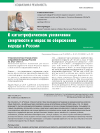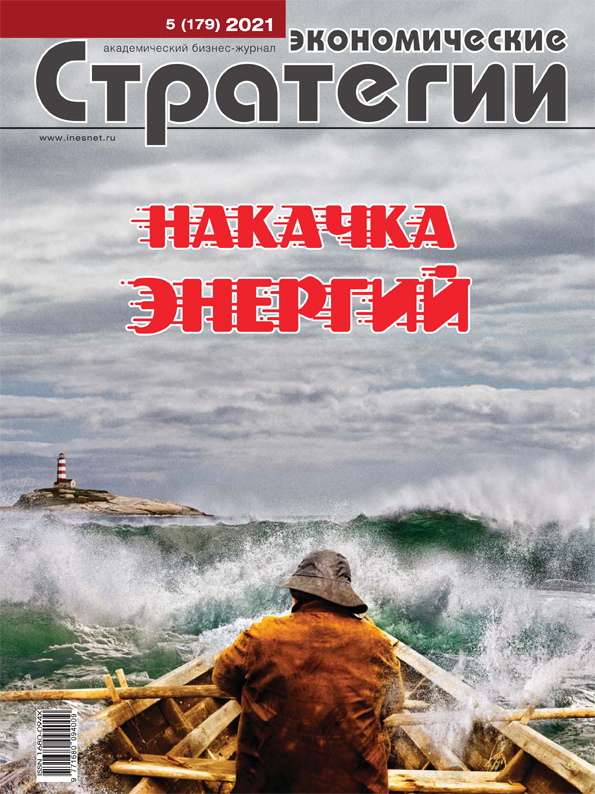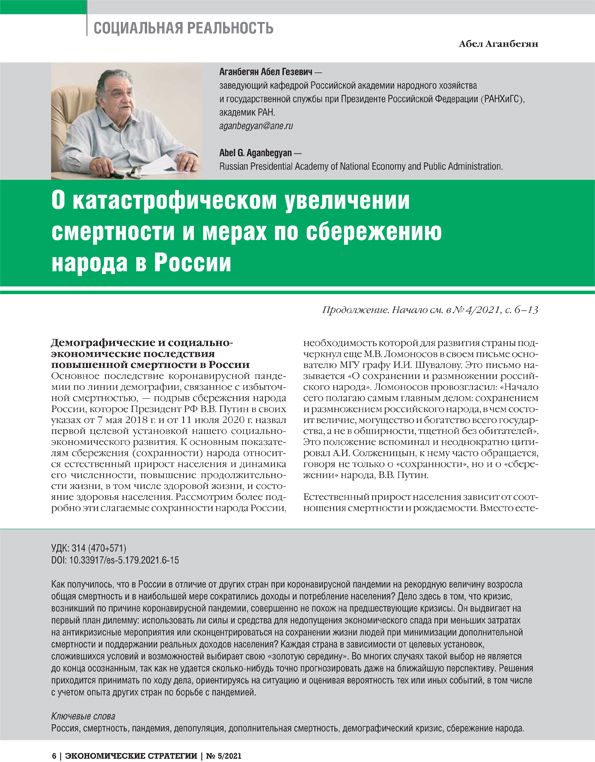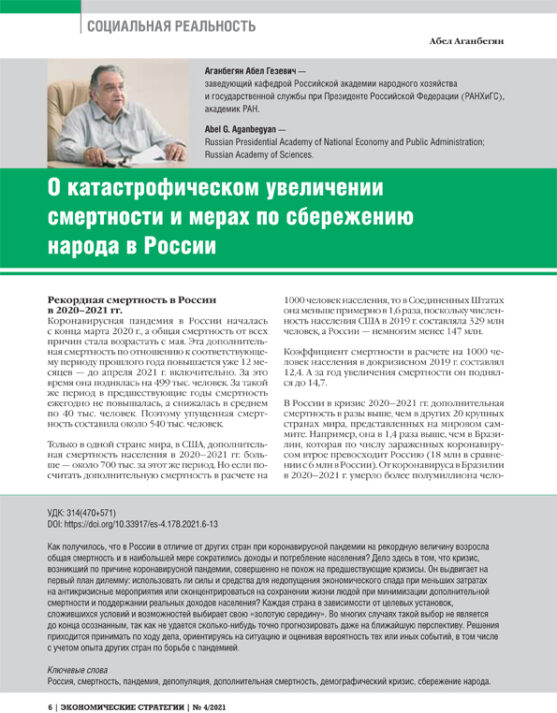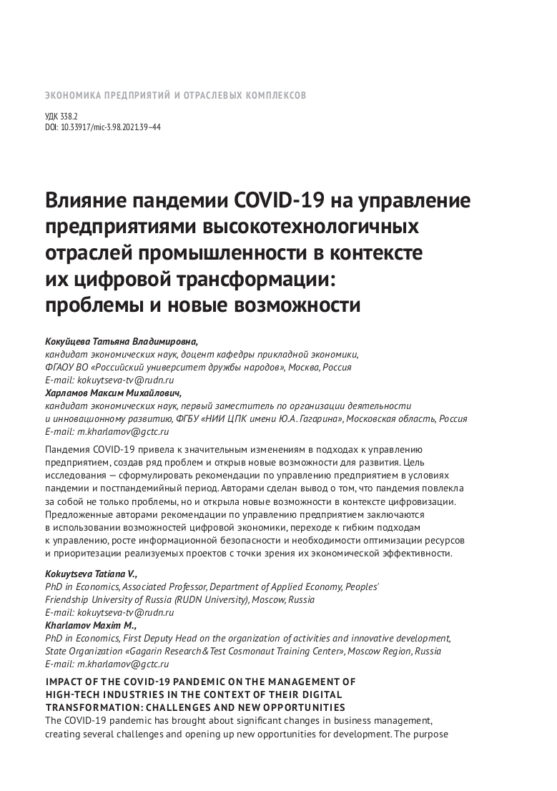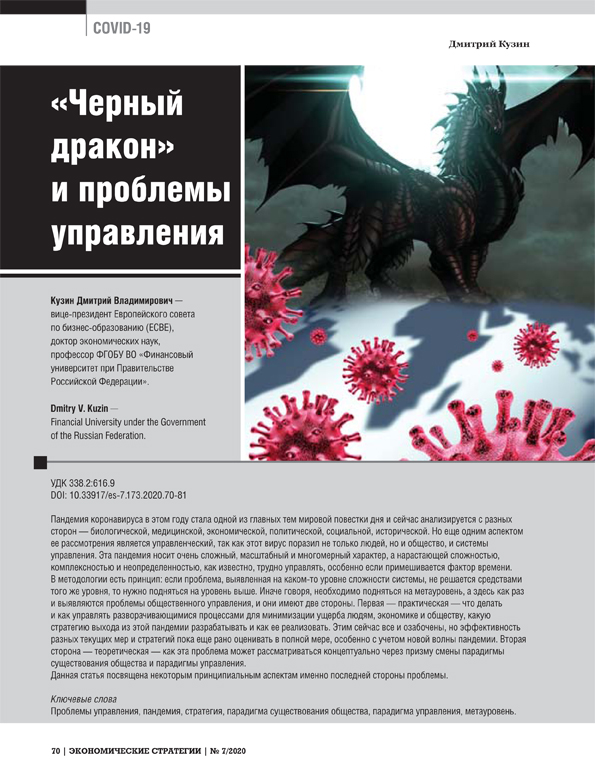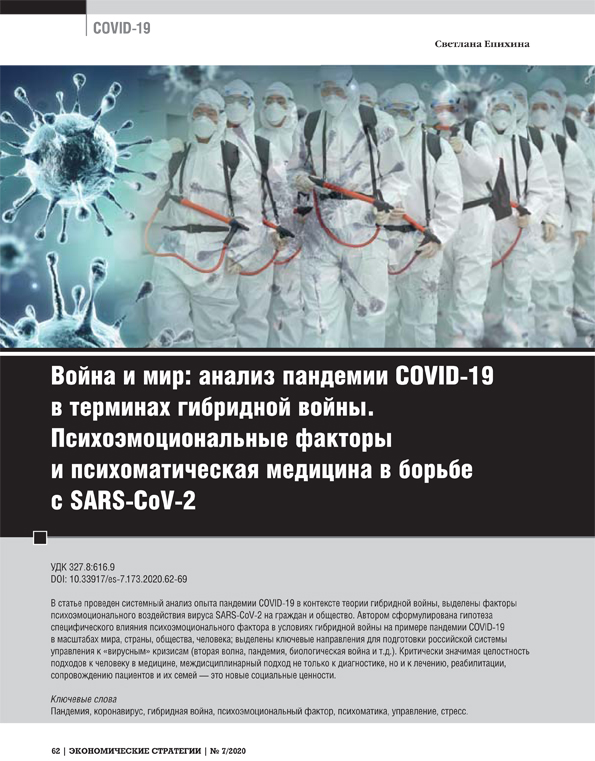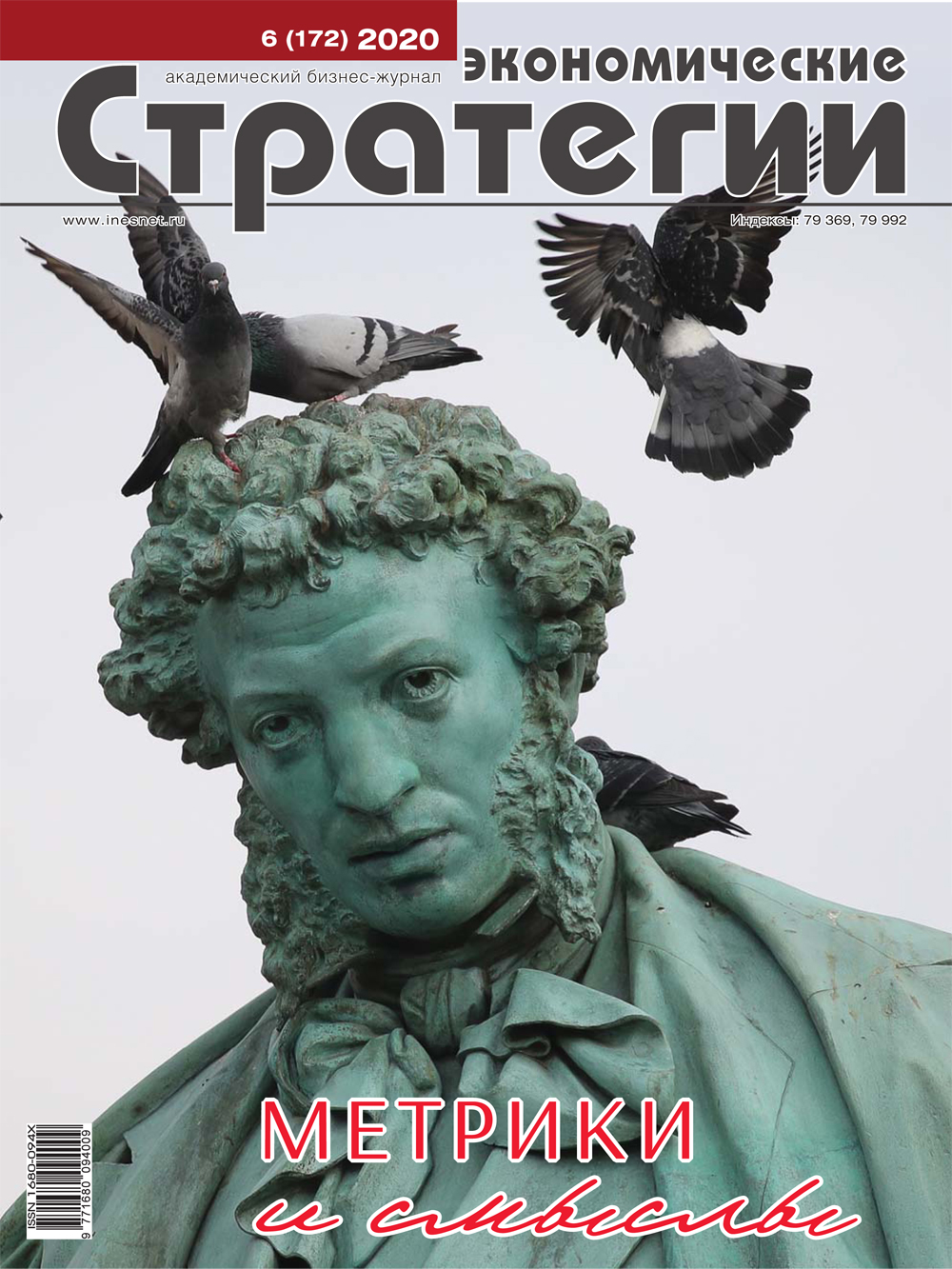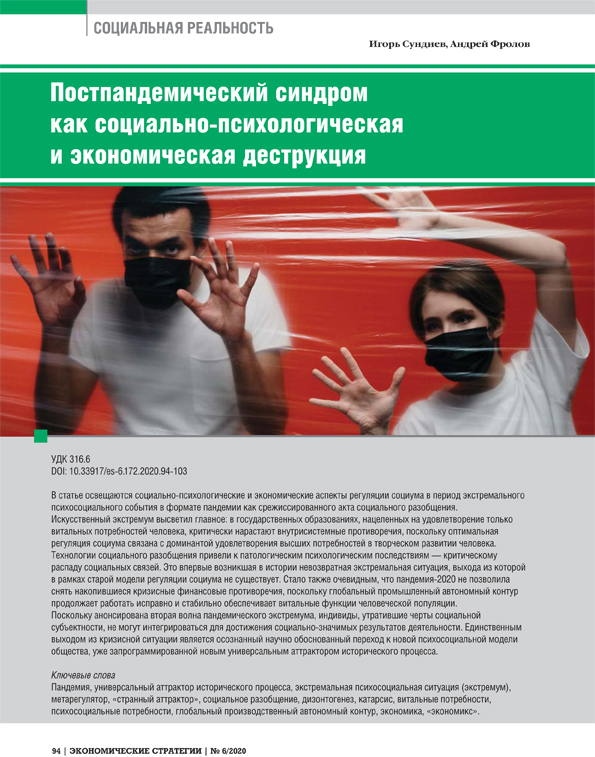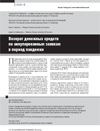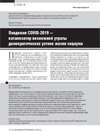Comprehensive Approach to Harmonizing the Problem of Sustainable Development of the «Climate — Nature — Society» System
DOI: 10.33917/es-3.195.2024.114-119
The author examines transformation of the “climate-nature-society” system (CNSS), identifying potential directions for sustainable development and improving the well-being of the Russian population. In this context, an example of the forestry complex shows the key role of the best available technologies in creating social production, minimizing losses, waste and negative impacts on the environment. It is proven that effective implementation of conceptual platforms within the digital economy depends both on the legislative framework and on national policies on environmental management issues that are consistent with the trend of CNSS stable development.
References:
1. Glaz’ev S.Yu. Rossiyskaya ekonomika v nachale 2020 goda: o glubinnykh prichinakh narastayushchego khaosa i komplekse antikrizisnykh mer [The Russian Economy at the Beginning of 2020: About the Underlying Causes of the Growing chaos and a Set of Anti-crisis Measures]. Rossiyskiy ekonomicheskiy
zhurnal, 2020, no 2, pp. 3–39.
2. Khabibullina Z.R. Tvorcheskiy trud: spetsifika, dinamika razvitiya i kharakteristika sistemnoy transformatsii [Creative Work: Specificity, Dynamics of Development and Characteristics of Systemic Transformation]. Ekonomicheskaya nauka sovremennoy Rossii, 2020, no 1, pp. 32–40.
3. Bartalev S.A., Stytsenko F.V. Sputnikovaya otsenka gibeli drevostoev ot pozharov po dannym o sezonnom raspredelenii proydennoy ognem ploshchadi [Satellite Assessment of the Death of Tree Stands from Fires Based on Data on the Seasonal Distribution of the Area Covered by Fire]. Lesovedenie, 2021,
no 2, pp. 115–122.
4. Pavlov P.V. Prigranichnaya torgovlya kak chast’ prigranichnogo sotrudnichestva Rossii s inostrannymi gosudarstvami: problemy administrativnopravovogo
regulirovaniya [Cross-border Trade as Part of Cross-border Cooperation Between Russia and Foreign States: Problems of Administrative and Legal Regulation]. Administrativnoe pravo i praktika administrirovaniya, 2013, no 2, pp. 1–71.
5. Ryumina E.V. Vklyuchenie ekologicheskogo faktora v traditsionnye otsenki kachestva zhizni [Inclusion of the Environmental Factor in Traditional Assessments of the Quality of Life]. Ekonomika prirodopol’zovaniya, 2020, no 6, pp. 122–129.
6. Kryazhev A.M., Guseva T.V., Tikhonova I.O., et al. Tsellyulozno-bumazhnoe proizvodstvo: ustoychivoe razvitie i formirovanie ekonomiki zamknutogo tsikla [Pulp and Paper Production: Sustainable Development and the Formation of a Closed-cycle Economy]. Ekologiya i promyshlennost’ Rossii, 2020, vol. 24, no 11, pp. 48–53.
7. Broslavskiy L.I. Rossii nuzhen zakon o vozmeshchenii ekologicheskogo vreda [Russia Needs a Law on Compensation for Environmental Damage]. Ekologicheskoe pravo, 2020, no 3, pp. 37–43.





